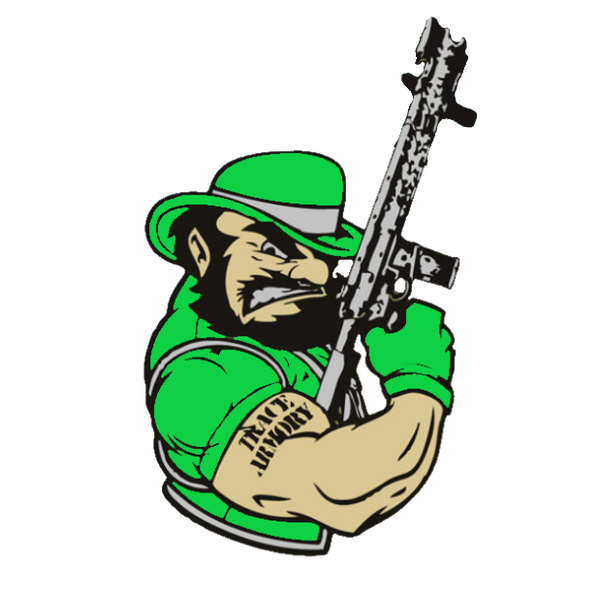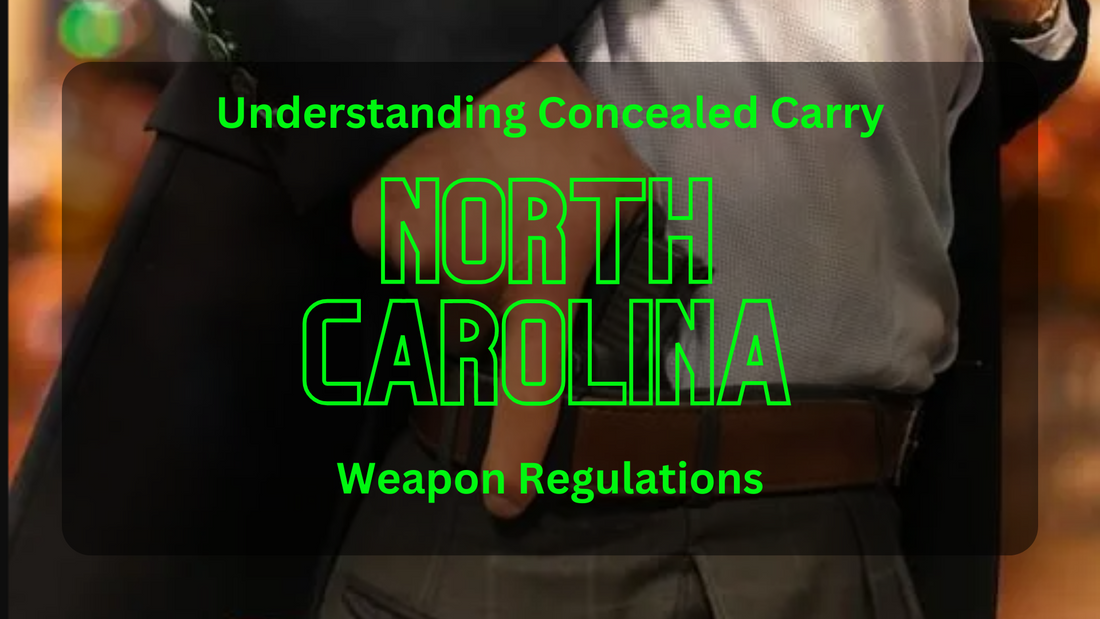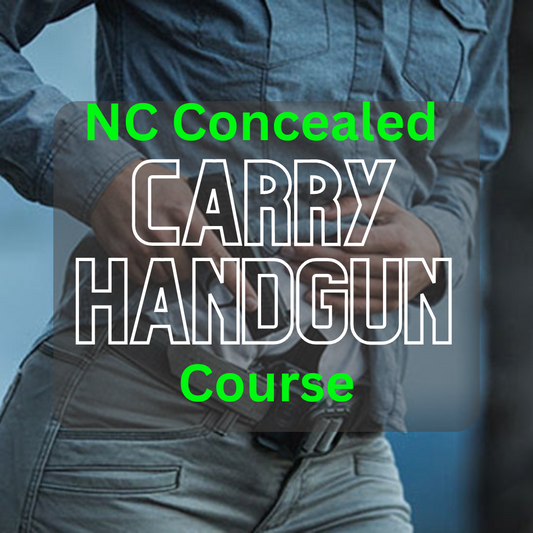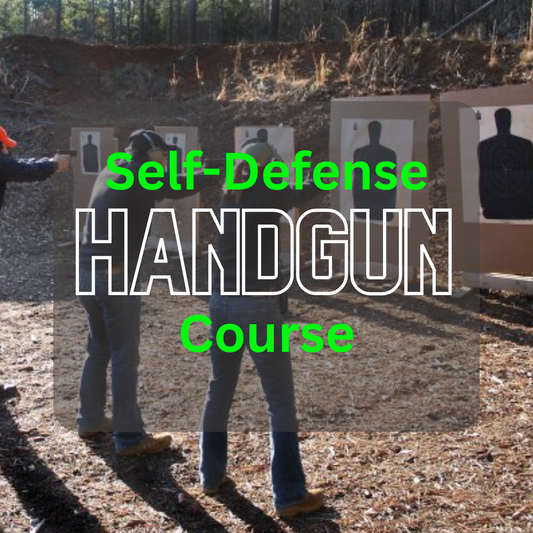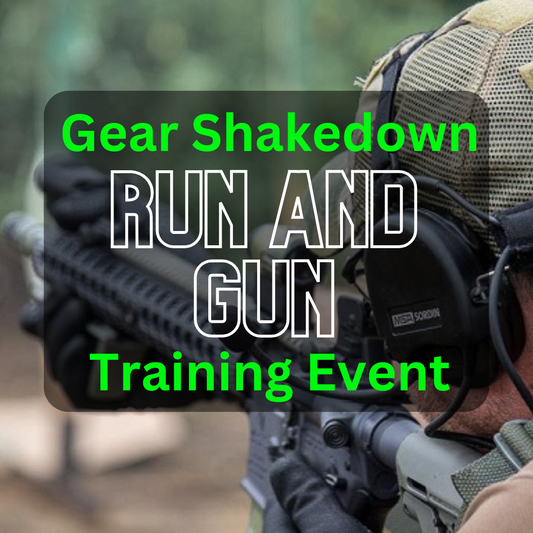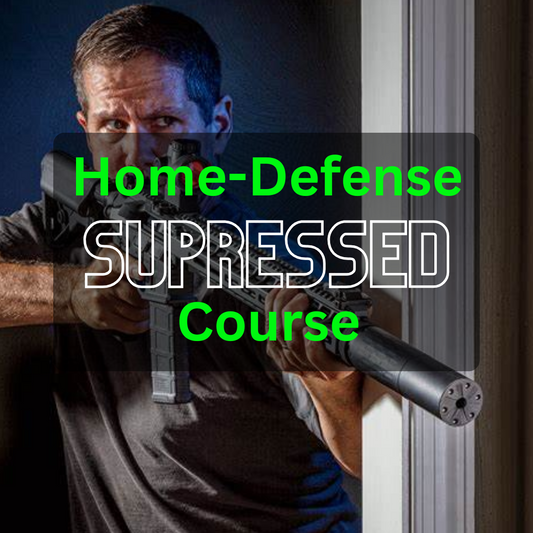
North Carolina stands as a beacon of Southern hospitality, but when it comes to carrying concealed weapons, the state maintains specific regulations to ensure the perception of public safety. Citizens who hold the right to bear arms in high regard, we also underscore the importance of responsible gun ownership. This article explores the nuanced landscape of weapons permissible for concealed carry within the Tar Heel State, influenced by an intricate weave of state laws and federal advisories.
Weapons Defined and Restricted
What is a handgun in North Carolina? Does the description of a revolver or semi-auto pistol meet the definition? And what about a large-frame handgun based on the AR-15 design? Let's explore the details.
North Carolina General Statutes (NCGS) § 14‑415.10. Definitions.
The following definitions apply to this Article:
- Carry a concealed handgun. – The term includes possession of a concealed handgun.
- Handgun. – A firearm that has a short stock and is designed to be held and fired by the use of a single hand.
The intention behind the design, specifically for single-hand firing, is key. The definition is not restricted by a caliber or operating system, whether single-action, double-action, gas, recoil, or even blow-back operated. The short-stock requirement, to be held and fired by a single hand, does mitigate the use of some accessories like a forward vertical grip.

The state has unique terms and labels for firearms, including those regulated under federal law, the National Firearms Act of 1934. North Carolina places NFA firearms in the category of "weapon of mass death and destruction," as per North Carolina statute § 14‑288.8. Crucially to this conversation, NCGS § 14-288.8 includes two definitions of what constitutes a shotgun and a rifle versus a handgun, as well as what defines a short-barreled rifle and a short-barreled shotgun.
North Carolina General Statutes § 14‑288.8 (c) 3: Any firearm capable of fully automatic fire, any shotgun with a barrel or barrels of less than 18 inches in length or an overall length of less than 26 inches, any rifle with a barrel or barrels of less than 16 inches in length or an overall length of less than 26 inches, any muffler or silencer for any firearm, whether or not such firearm is included within this definition. For this section, a rifle is defined as a weapon designed or redesigned, made or remade, and intended to be fired from the shoulder.
The main difference between a rifle, pistol, and shotgun is not outlined in state law but in the NFA. Handguns and rifle barrels are rifled with lands and groves, while shotgun barrels are smooth bores.
The Gray Area: Pistol Braces and ATF Regulations

A topic of ongoing debate and fluctuating federal oversight is the status of pistol braces. These accessories are specifically designed to aid in the single-handed firing of large-frame handguns, pistol braces have sat in a murky regulatory zone. North Carolina residents might find some solace in knowing they can legally conceal carry a large-frame pistol on or off body. However, the Bureau of Alcohol, Tobacco, Firearms, and Explosives (ATF) reserves the right to modify its stance on such accessories. Given this unpredictable regulatory environment, the ATF creates, caution and due diligence become paramount. Concealed carriers need to stay informed about current federal rulings to avoid inadvertently falling into a legal quagmire.
Other Weapons
Also, for the context of this blog post, it should be noted that weapons such as knives (excluding ordinary pocket knives), blackjacks, and martial arts weapons are not allowed to be legally concealed weapons with or without the sheriff-issued NC Concealed Carry Handgun Permit.
NCGS § 14‑269 (d) This section does not apply to an ordinary pocketknife carried in a closed position. As used in this section, "ordinary pocketknife" means a small knife designed for carrying in a pocket or purse that has its cutting edge and point entirely enclosed by its handle and that may not be opened by a throwing, explosive, or spring action.
Concealed Carry Handgun Permit: A Must-Have

North Carolina mandates a thorough process for citizens who carry a concealed handgun. Interested parties must complete a state-approved training course, to learn the practical use and legal responsibilities of carrying a concealed handgun. Upon successful completion, applicants must submit the training certificate to the sheriff's office in their county of residence. It is the sheriff's discretion to issue a permit, underscoring the role of local authorities in ensuring that concealed handguns are in the hands of trained and responsible citizens.
Conclusion
To navigate the concealed carry laws in North Carolina, one must understand state-specific regulations and stay informed about federal advisories. The state-issued privilege of concealed carry is granted to only law-abiding citizens in North Carolina, who, in turn, must adhere to strict guidelines that define allowable weapons. The permit process applies explicitly to handguns. Moreover, given the dynamic nature of firearm laws and the evolving positions of federal agencies such as the ATF, concealed carriers must remain well-informed and proactive in their compliance efforts. By doing so, they can ensure their privileged rights are preserved without compromising the perception of public safety.
The Concealed Carry Permit is for Handguns ONLY in North Carolina.
Join me for our next scheduled NC Concealed Carry Course
John Boyette
References
